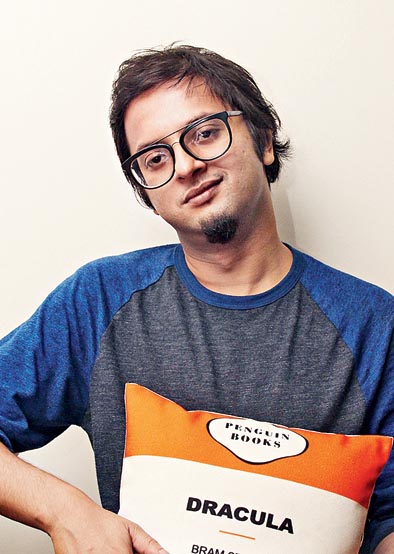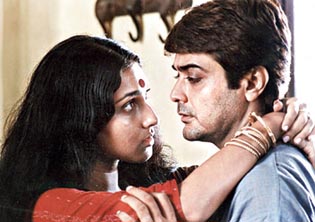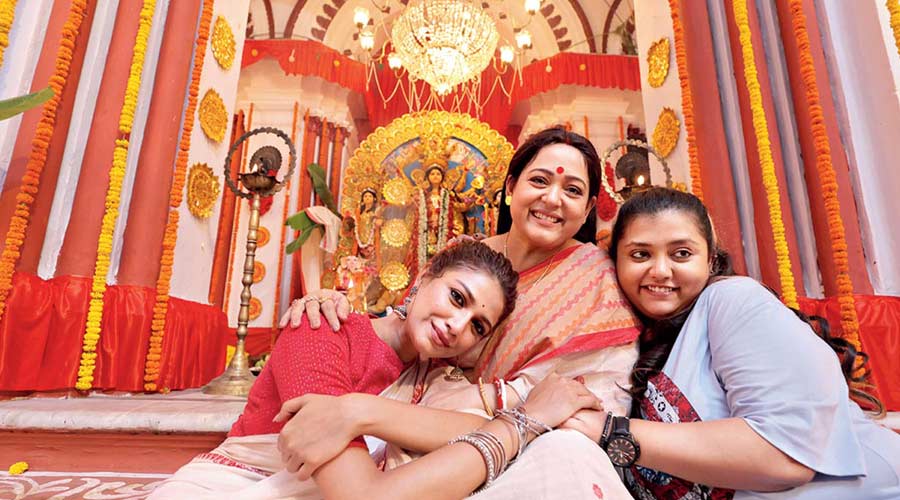During the isolation of this year’s lockdown, the physical separation from my family oddly drew us closer. We all trauma-bonded with the world as one big dysfunctional family undergoing the same crises. Today the value of family for all of us has a whole other meaning. It was time to make Ekannoborti, a film that’s been brewing inside me since I was 17, sitting in Nandan watching Rituparno Ghosh’s film Utsab. That was the moment when I knew I had to make Bengali films.
Ekannoborti is about a broken family that is forced by the matriarch to come together for Durga Puja, when skeletons come tumbling out of the closet as secrets come exploding to the surface, amidst festivities, fights and bonding, with a chaotic film crew thrown into the mix. It’s a reminder to us all that one could be going through a divorce and a midlife crises and have two daughters, one dealing with her toxic relationship and the other her weight issues, but if they all come together as a family in a festival sometimes things can get better. It exposes what really goes on behind the locked doors of an average “happy” household.
When I started out making films in my 20s, youth-centric stories came naturally to me. But now post-40, I feel ready to delve into the emotionally complex world of drama and family that drew me to Bengali cinema to begin with.
Growing up in New York, far away from my extended family in Calcutta, as a lonely mixed-breed (half bheto-Bangali-half American) I used to stake out daily outside a tiny Indian video store in Jackson Heights, waiting for Rituparno Ghosh’s latest film to release. He was all my mother would talk about. Having lost my father at the age of five, Ma was my whole world.

Mainak Bhaumik
As a single mom struggling to bring up two boys, Ghosh’s cinema gave her something to get excited about. His psychologically complex, culturally rich and female-centric stories suddenly added colour to her life and gave her a reason to dress up pretty in a sari to go to the movie hall with her friends and then discuss it later with me over dinner.
Rituparno Ghosh had gotten Ma’s attention, and so he irrevocably had mine. As I watched Utsab, I was struck at such a personal level as it was a story of a family much like mine. For the first time I found myself identifying, embracing, loving and enjoying who and what I was brought up into. It was in that moment that I said to myself: “I want to tell stories about my family and the Bengali that I am.”

Only “slight” problem being, I could neither read nor write Bengali. Great vision, zero chances of execution. Nevertheless, being a reckless combination of stubbornness and ignorance, to my poor dear mother’s horror, I quit my job, taught myself Bengali, followed Rituda’s filmography like a fanboy and years later, here I am.
On a personal level, Ekannoborti’s my walk down memory lane of my Dadu’s (maternal grandfather) barir pujo where our whole family would come together and for those five days life would magically stand still. On Dashami we were always so angry that it was only five days. I guess that’s the effect of adda and true family bond. I also wanted to honour Rituda, my hero and best friend, by telling my story of a broken family in 2021 through the prism of his set-up that made Bengali cinema palatable to an audience at a time when there were either potboilers that the urban middle class didn’t identify with or there were art-house cinema that sort of went over their head. Rituda brought in a middle ground.
The fun for any writer and director working in drama is when you have a stellar cast like Apadi (Aparajita Adhya), Koushik Sen, Aloknandadi, Biswanath, Madhurima, Sauraseni, Shankar Debnath, Gaurav, Tanika, Sayon... the list goes on. And, of course, taking on the challenge of placing a raw theatre talent like Bhutu (Ananya) in such a pivotal role and watching her pay me back in millions. I wanted to give Saura (Sauraseni) a very different character and see her more like a girl in a sari, rather than dress her in my T-shirts like in Generation Ami.
Apadi and I stayed up nights working on making her character starkly different from Mishti in my last film Cheeni. I was blessed with a rock-solid team, including Madhubanti, my assistant director (whose father was interestingly a regular on Rituda’s films as an actor and associate); Prosenjit, my director of photography who just took the challenge; Sumit, my stellar editor; and Savvy, Prosen and his Dol for creating music that helped bring out the emotion from page to screen.
This is a fiercely honest film for me that truly values a family that cares and how much it means to me because I don’t know how long I’ll have it. When I was 17 and I’d go to a friend’s house and Ma would call to check up on me and see how I am, I would get annoyed as to why she’s not letting me enjoy my freedom. Now, two decades later when Ma calls and asks, “Kheyechho?”, somewhere I’m smiling thinking I’m glad to know there’s always family that cares and you’re lucky if you have it. I’m not going to be full of myself to even want to know what Rituda my friend would think if he were around to see my film but somewhere in the back of my mind I know when the film comes out, somewhere wherever he is Rituda will be ripping it apart to shreds saying — “Tui ekdom eta bhul korechhish, moteo ota Bariwali te chhilo na”, and who doesn’t love being so sweetly torn apart by their mentor, idol and best friend. I don’t miss it because I know he is still doing it. I’m just grateful that Shrikant Mohta and Mahendra Soni allowed me to take a walk down memory lane.
Ekannoborti is a fanboy film to Rituda, and a love letter to my family. Ma Durga comes with her entire family to fight the demon, we gather with our families during Puja and fight our inner demons.
